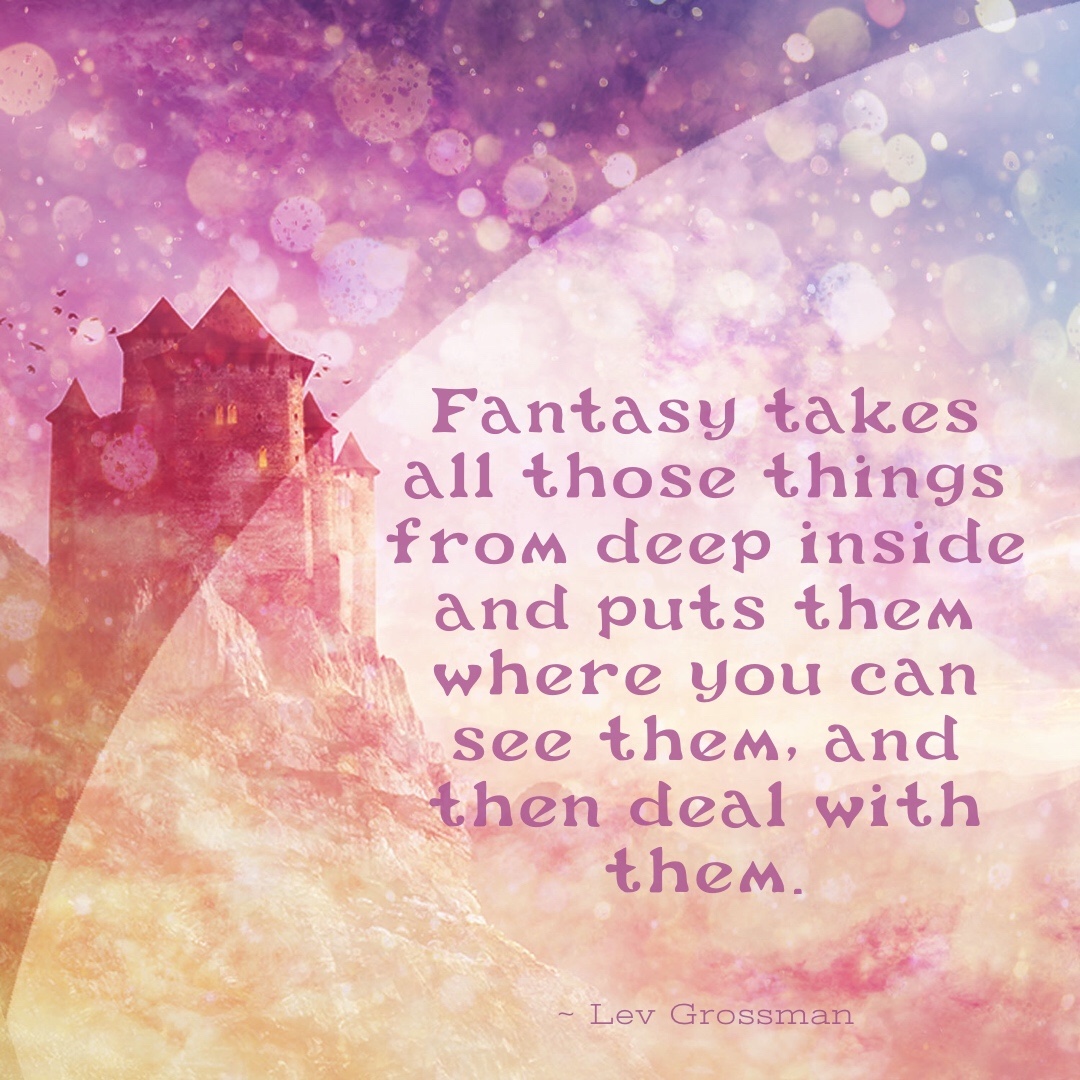
Sometimes, I wonder if I read too much fantasy. I seldom dip my literary toes into anything that doesn’t have at least a little magic in it. I’m not even keen on most this-world fantasy (urban fantasy, magical realism, etc.) — I have to be taken out of this world in order to really engage with a story.
It’s very easy to get caught up in the window dressing of fantasy, the swords and wizards and castles and dragons. Basically, everything on this list:
Planning for spring. Suggested additions welcome. pic.twitter.com/qlbtMZKzmZ
— Christopher Rowe (@ChristopherRowe) December 25, 2021
I’m not going to lie — I love most of the things on the list, good, bad and indifferent. I don’t always love the stories they’re used to tell, but a weak story with a good fantasy aesthetic is probably going to hold my attention longer than a good story with a real world aesthetic.
But I don’t love fantasy just because of the aesthetic. It’s not about escaping the real world, either. As Lev Grossman points out in his essay about reading C.S. Lewis, you don’t really escape anything in fantasy.
“…I think fantasy is a powerful tool for coming to an understanding of oneself. The magic trick here, the sleight of hand, is that when you pass through the portal, you re-encounter in the fantasy world the problems you thought you left behind in the real world.”
Lev Grossman, “Confronting Reality by Reading Fantasy”
I think about that a lot, and about what sort of problems I bring with me when I delve into a fantasy world (as a reader or as a writer). According to Lisa Cron , whose work on story structure is rooted in neuroscience, the primary purpose of story is to prepare the reader to survive and prosper.
“Stories let us vicariously try out difficult situations we haven’t yet experience to see what it would really feel like, and what we’d need to learn in order to survive.”
Lisa Cron, Story Genius
Once upon a time, those “difficult situations” were things like how to avoid predators that wanted to eat us. These days, our difficult situations more likely revolve around the complex interactions that we depend on to thrive in society. Things like how to work as a team, or how to recognize love, or how to forgive someone who has hurt you — these questions (and thousands others like them) are why we connect so powerfully with stories in any genre. They help us navigate the maze of social relationships by preparing us for situations we may face as we go about our lives.
But fantasy does a little bit more than that. While fantasy stories still provide guidance in how to interact with other people (if in slightly exaggerated circumstances, e.g. wicked stepmothers), it also opens a portal to explore what is going on in your own head.
As Grossman explains:
“The whole modernist-realist tradition is about the self observing the world around you—sensing how other it is, how alien it is, how different it is to what’s going on inside you. In fantasy, that gets turned inside out. The landscape you inhabit is a mirror of what’s inside you. The stuff inside can get out, and walk around, and take the form of places and people and things and magic. And once it’s outside, then you can get at it. You can wrestle it, make friends with it, kill it, seduce it. Fantasy takes all those things from deep inside and puts them where you can see them, and then deal with them.”
Lev Grossman, “Confronting Reality by Reading Fantasy”
As a very self-reflective person, someone who spends a lot of time thinking about who I am and how I fit into this world (or maybe don’t fit?), I don’t find modern “mundane” fiction very illuminating. I need something more, something that twists the lens and creates a new perspective that I can learn from. What I crave from a story, whether I’m reading or writing one, is that extra layer of meaning where I can explore not just the social landscape, but my internal landscape, as well. If I can be so bold as to quote myself:
“It is only by escaping the bounds of the everyday that certain truths about humanity, the universe, and ourselves may be reached. Fantasy derives from the same realm as myth and dream, a realm that allows us to explore symbolically what is too complicated to make much sense of otherwise. Abstract ideas can take concrete form; black and white are unblurred by the grays of everyday life.”
Stace Dumoski, “The Importance of Fantasy”, Phantastes: The Online Journal of Fantasy Criticism, 1998
Clearly my preoccupation with fantasy literature has lasted a long time. I don’t have a great conclusion for this post — my blogging skills are rusty, but I hope to rev them up again over the next few months. I expect I’ll return to this topic again.
In the meantime, maybe you’ll share your own thoughts on the topic: why do you love reading and writing fantasy? Comment below! If I get enough responses, I’ll do a roundup of answers.
